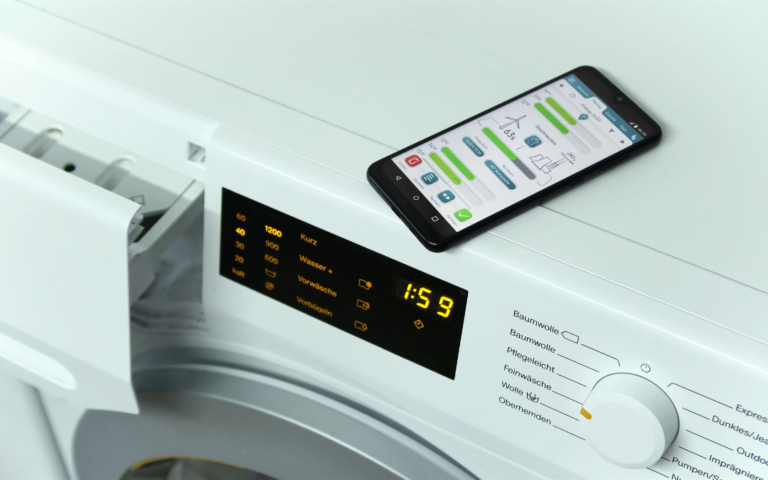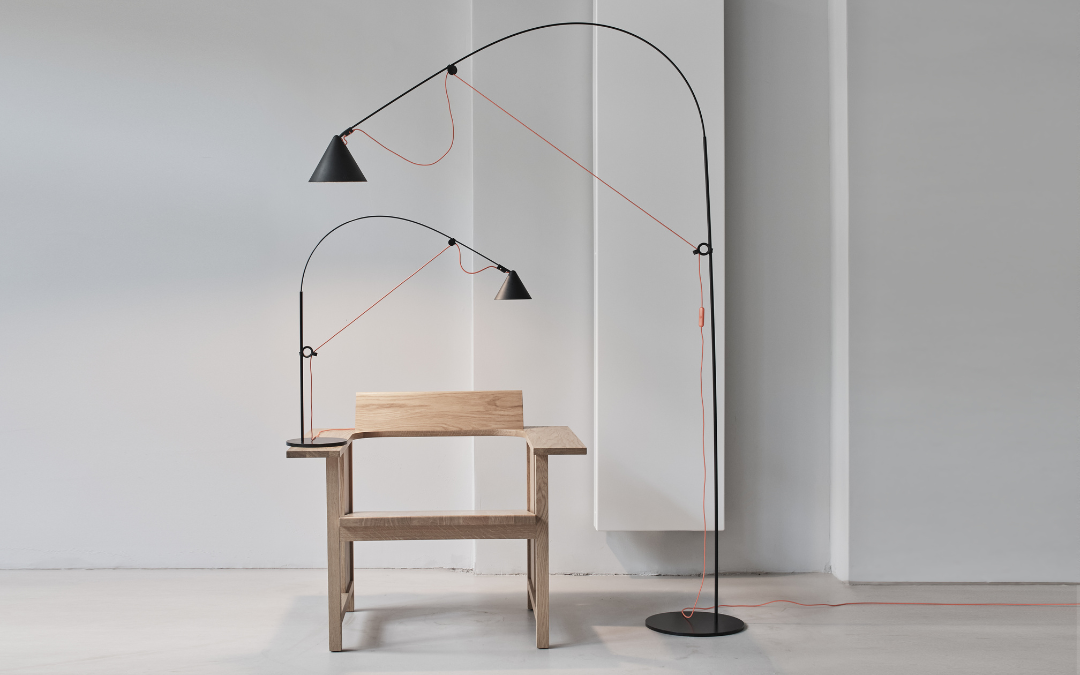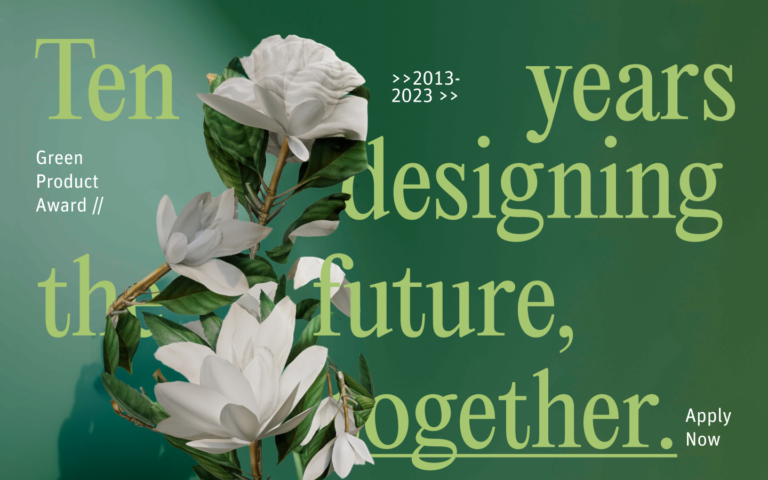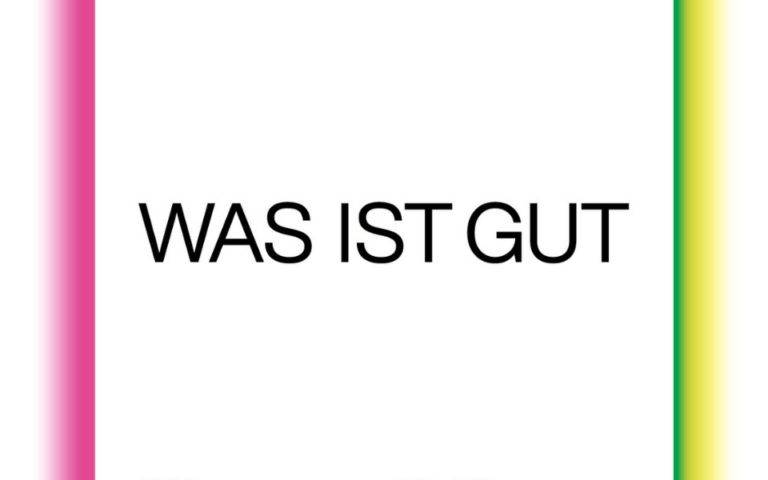With 14 winners, the Federal Ecodesign Award once again honors a range of future-oriented solutions for a wide variety of challenges. These include intelligently designed lights, a seasonal calendar for green electricity, prefabricated foundations for wind turbines, a deposit chair as well as progressive concepts for the transformation of the clothing industry and the data-based rewetting of peatlands. Five of the 14 awards go to Bavaria!
“How good or harmful a product is for the environment is largely determined by its design. (…) For more than ten years, the winning projects of the Federal Ecodesign Award have repeatedly shown what sustainable products or services of the future can look like. The interplay of outstanding design and ecology is the unique selling point of the prize. Environmentally friendly products and services are the key to sustainable consumption,” says Federal Environment Minister Steffi Lemke, whose ministry has been awarding the prize together with the Federal Environment Agency and the International Design Center Berlin since 2012.
Four awards go to Bavaria


A number of projects by designers, universities and companies with which we have special ties were also honored.
At FACHPACK 2022, the young designer Helène Fontaine (Burg Giebichenstein Kunsthochschule Halle, Saxony-Anhalt) already made a name for herself with her easy-to-open i‑si tray packaging. She has now won an award in the young designers category for her OPV greenhouse film 2harvest. The durable and flexible 2harvest greenhouse film made of PET has integrated organic photovoltaic cells. This enables dual use of agricultural land, as energy and food can be produced in parallel.
A student project from Coburg University of Applied Sciences also received an award in the young talent category. The app PeakPick by Sascha Greilinger is a seasonal calendar for green electricity. By shifting the switching on of appliances to a period with a high proportion of energy production from wind and solar plants, the principle of load shifting is also applied in private households.
bayern design member and MCBW sponsor Steelcase received an award in the product category for its Flex Perch standing stool. The Steelcase standing stool is the world’s first piece of furniture made with plastic from BASF’s ChemCycling project, he said. This technology creates a new type of raw material from a waste stream from electronics production.
In the same category, the AYNO luminaire family from Diez Office in Munich received an award. AYNO’s LED and transformer can be replaced by plug-in connections, making it one of the first LED luminaires that can be repaired by customers without tools. Already made from recycled materials, it can itself be easily separated into three recyclable primary materials.
The Nuremberg-based company ball‑b tackled a completely different problem. Until now, highly toxic baits have often been hung unprotected in the sewer for rat control. Even in sewage treatment plants, these toxins are only degraded to a small extent. With the ToxProtect bait protection boxes, the baits now no longer come into contact with water, even during floods. This saves up to 98% of poison baits or several 100 tons in Germany and the hazardous substances are no longer deposited in the environment. In addition: a cloud-based web service enables efficient monitoring of rat activity and makes thousands of control visits by car obsolete. The boxes are produced locally and can be reused.
More Honors
In the category young talents
- 5 TONS by Maren Klamser (Bauhaus University Weimar, Thuringia) is a mineral and recyclable solid material made from brick dust from broken masonry and recycled aggregate from mineral construction waste. The material is the basis of a dry stacking system for masonry blocks.
- re:wet — peat:lab by Milan Bergheim (weißensee kunsthochschule berlin, Berlin) is a service blueprint for the rewetting of peatlands. With peat:lab, farmers collect data such as terrain heights or water levels and store them in a digital twin. In this way, measures for rewetting can be planned and coordinated.
In the Concept category
- With the Shared Factory from ito ito GmbH (head office: Bremen), one/one GbR (head office: Bremen), fashion labels and knitting mills become part of a digital on-demand design and production platform for knitwear. With the SaaS solution, designs can be digitized, freely modified, first sold and then produced.
In the category Service
- reverse.supply by RS Recommerce Technologies GmbH (headquartered in Berlin) offers with its recommerce platform an efficient solution for fashion retailers to set up or expand their own second-hand store and to deal with returns, overhangs or B‑goods in a sustainable as well as economically sensible way.
- REX from Circuform B. V. (Headquarters: De Meern, The Netherlands) with Studio Ineke Hans (Headquarters: Arnhem, The Netherlands) is the first Dutch deposit chair that can be returned at any time to local Circuform collection points for a refund. Returned deposit chairs are inspected and cleaned, repaired if necessary and resold — again with a deposit.
In the category Product
- HIIVE by HIIVE UG (Headquarters: Teltow, Brandenburg, Germany) provides honey bees with a natural, species-appropriate home by catering to the animals’ needs. The design replicates the microclimate of a tree cavity, the bees’ natural habitat. The modular design ensures easy reparability.
- V‑Locker Smart Bike Parking System by V‑Locker AG (headquartered in Dübendorf, Switzerland) with Meyer-Hayoz Design Engineering AG (headquartered in Winterthur, Switzerland) is an automated parking system that can safely store up to 60 bikes in one car parking space. Thanks to individual facade design, the modular towers blend into the urban environment. Operation is intuitive via smartphone app.
- The wind power precast foundations from Smart & Green Mukran Concrete GmbH (company headquarters: Sassnitz, Mecklenburg-Western Pomerania) for wind turbines consist of precast rib and ring elements and the anchor cage. They require up to 70% less concrete and can be transported to the construction site by approx. 40 standard trucks and installed there within one week.
- The X‑Change technology of Molto Luce GmbH (headquartered in Wels, Austria) allows easy replacement of an LED board without having to change the entire luminaire. The change is carried out by means of a bayonet catch and works completely without tools.
Most important German prize in the field of design for sustainability
The Federal Ministry for the Environment and the Federal Environment Agency (UBA) have been awarding the Federal Ecodesign Prize every year since 2012 together with the International Design Center Berlin. The competition honors outstanding work that is convincing from an environmental and design perspective in the four categories of product, service, concept and young talent. It is aimed at companies of all sizes and sectors as well as students.
Innovative content, design quality and environmental properties are the main criteria in the evaluation. Effects on everyday culture and consumer behavior are also taken into account. The entire product life cycle is taken into account, from the preliminary stages of production, through manufacturing, distribution and use, right up to the “end of life”.






